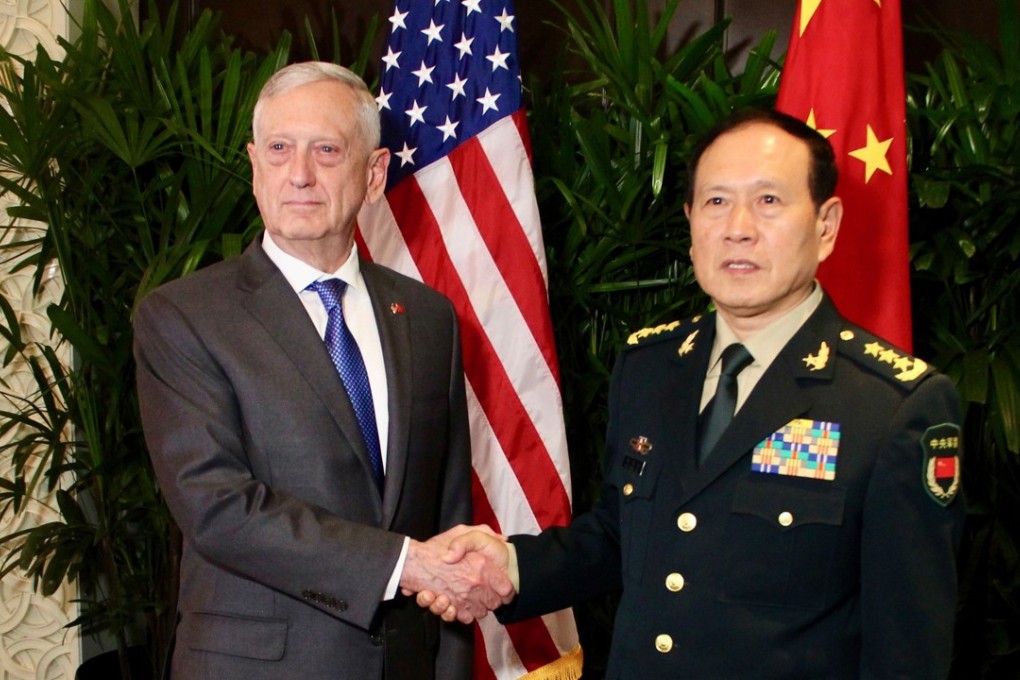China, US defence chiefs meet on sidelines of Asean meeting in Singapore
Wei Fenghe and James Mattis have ‘straightforward and candid’ discussion, commit to ‘finding time’ for further negotiations

China’s Defence Minister Wei Fenghe held talks with his US counterpart James Mattis at a key regional security summit on Thursday, after a meeting between the two men scheduled for earlier in the month was cancelled due to growing tensions between the two countries.
The officials talked for almost 90 minutes on the sidelines of the annual Association for Southeast Asian Nations (Asean) defence ministers’ meeting in Singapore, the main focus of which was the disputed South China Sea.
Randall Schriver, a US assistant secretary of defence for Asian and Pacific Security Affairs, told reporters after the meeting that Mattis described the meeting as “straightforward and candid” and that he had made clear Washington’s views on China’s increased militarisation of the strategic waterway.
“That’s an area where we will continue to have differences and talk through,” Schriver said.
On the possibility of Wei visiting the US for more talks, he said there “was a commitment on both sides to try to find a time”.
The high-level meeting came after planned talks between Mattis and Wei were cancelled by Beijing, apparently in retaliation for Washington sanctioning a unit of China’s military for buying Russian fighter jets and missiles in September.